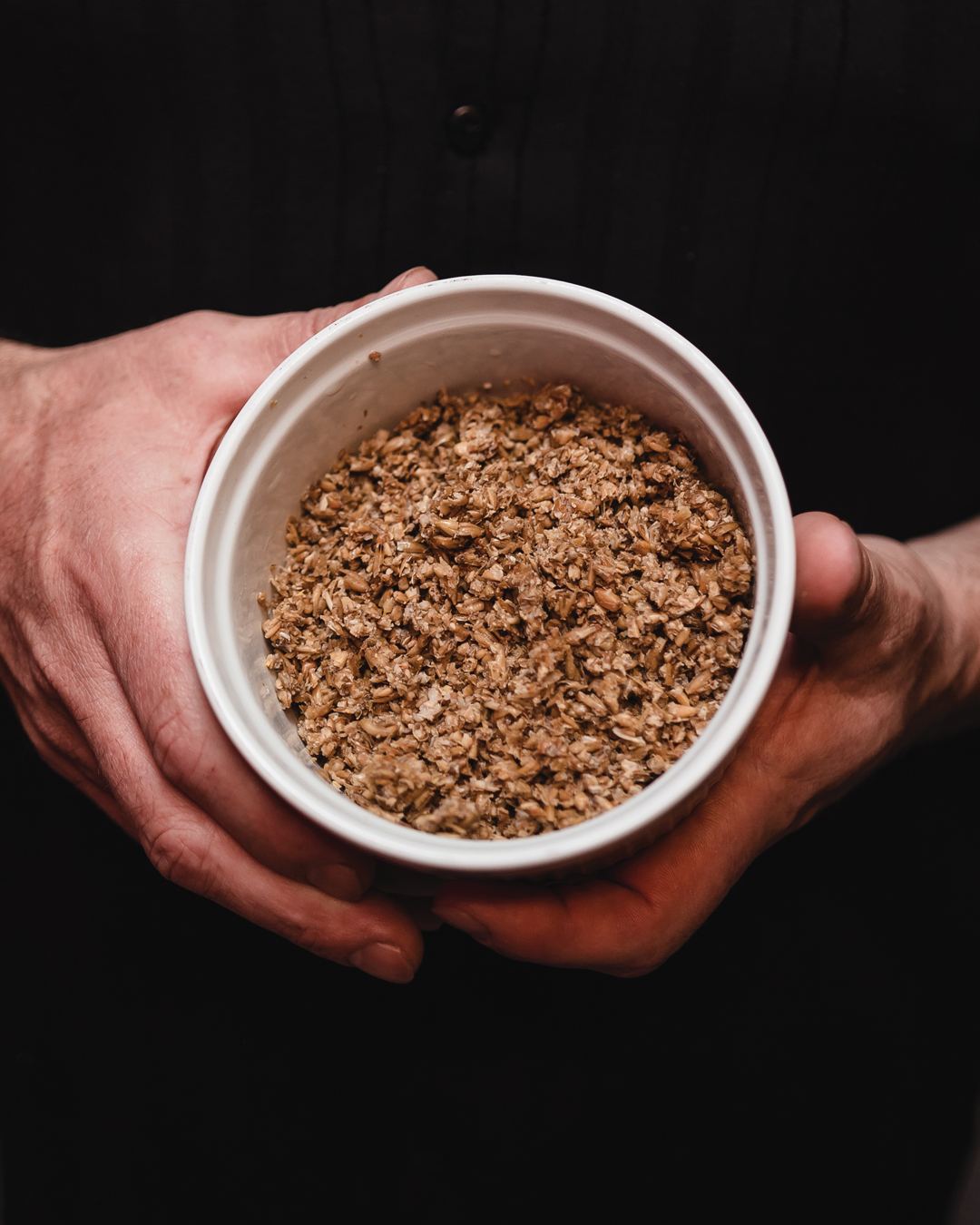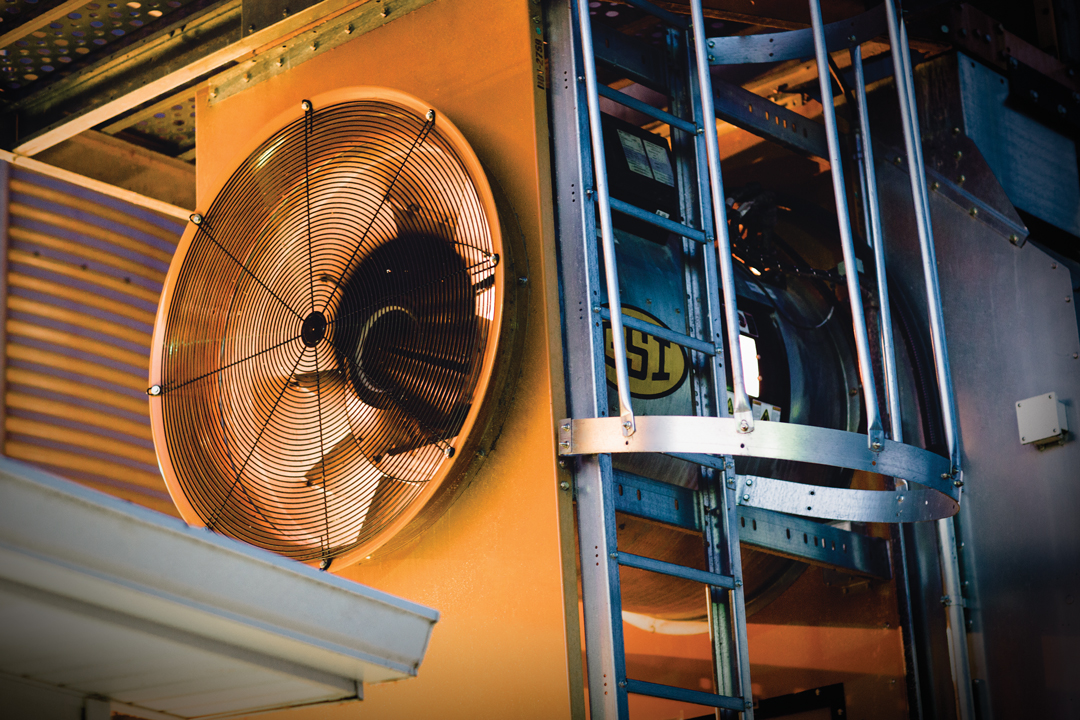MUCH TO GAIN WITH SPENT GRAIN
BY KAREN DURRIE • PHOTO COURTESY OF HALF HITCH BREWING
Two Alberta businesses have found value in the rescue of spent grain, a byproduct of the brewing process.
Cochrane-based Half Hitch Brewing Company produces craft brews such as Farmer’s Daughter Pale Ale. It uses about two tonnes of grain to produce each batch of beer. Much of its spent grain is donated as livestock feed. Containing barley, wheat, rye and oats, most is used by a bison operation near Sundre.
Half Hitch is owned and operated by the Kozloski and Heier families; Michael and Lisa Heier, their children and spouses. “We’ve always wanted to find unique ways of using our brewer’s byproduct,” said brewery president Chris Heier. “We wanted to find value-added opportunities.” From this brainstorm process, The Mash restaurant was born. Its first location opened in Airdrie in 2020. While this sister business offers Half Hitch beer on tap, it also incorporates the brewery’s spent grain in its menu items.
The wet product is bagged, frozen and transported to 11 The Mash locations in and around Calgary and Edmonton. “It creates a unique flavour profile,” said Heier. Spent grain is also a nutritious source of fibre and protein as well as phenolic and amino acids. “It’s got a real chew and visible grain.”
A former oil and gas executive, Shawn Leggett became fascinated with circular economics and upcycling. He discovered little was being done in Alberta and discovered potential profit in upcycled food industry byproducts. According to Allied Market Research, the global value of the upcycled food industry was US$53.7 billion in 2021, and it predicts this will hit US$97 billion by 2031.
Leggett first experimented with dried spent grain and coffee grounds. “I developed everything in our kitchen on a small scale,” he said. He brought pails of coffee grounds home from his downtown Calgary office and methodically dried them in his oven. He did the same with spent grain. “I would be up for 24 hours with the grain,” he said. “Every two hours I would flip it so I didn’t burn it. Then I’d mill it.” He also studied the benefits of spent grain as a food source and in cosmetics.
Legget launched Okotoks-based GroundUp Eco-Ventures in 2021, which employs its own proprietary processes. In his 4,000 square-foot facility he dries, processes, blends and packages products. These include spent grain flour, which he markets as “saved grain.” Additional products include brownie and other baking mixes and high-protein pancake mix. Coffee-based products include flour, body butter and hand lotion.
Restaurants have used GroundUp flours in menu items, and several small bakeries incorporate it in sourdoughs and crackers. GroundUp is also the only company in North America to make spent grain wax, a barley extract used in cosmetics, creams and lotions. “It has the same benefit as hydrocortisone, like for eczema,” said Leggett.
Such products illustrate the previously overlooked value of food waste, he added. “Last year we upcycled about 80,000 kilograms and this year we’re on trend to do the same.”
Wholesale demand for GroudUp products has increased and Leggett recently struck a deal with retail giant Costco for upcycled flour to be used in one of its products.
GroundUp products are available online at groundupev.com, from Amazon and
in select Alberta Sobeys and Safeway locations.







Comments